Best Practices for Sourcing in Indonesia: From Bali to Jakarta
Indonesia is a vast country with a population of over 270 million people, making it the fourth most populous country in the world. The country is known for its rich culture, diverse landscapes, and abundant natural resources. Indonesia is also a major player in the global sourcing industry, with products ranging from textiles to electronics. Sourcing from Indonesia can be a lucrative opportunity for businesses looking to expand their supply chain and tap into a new market.
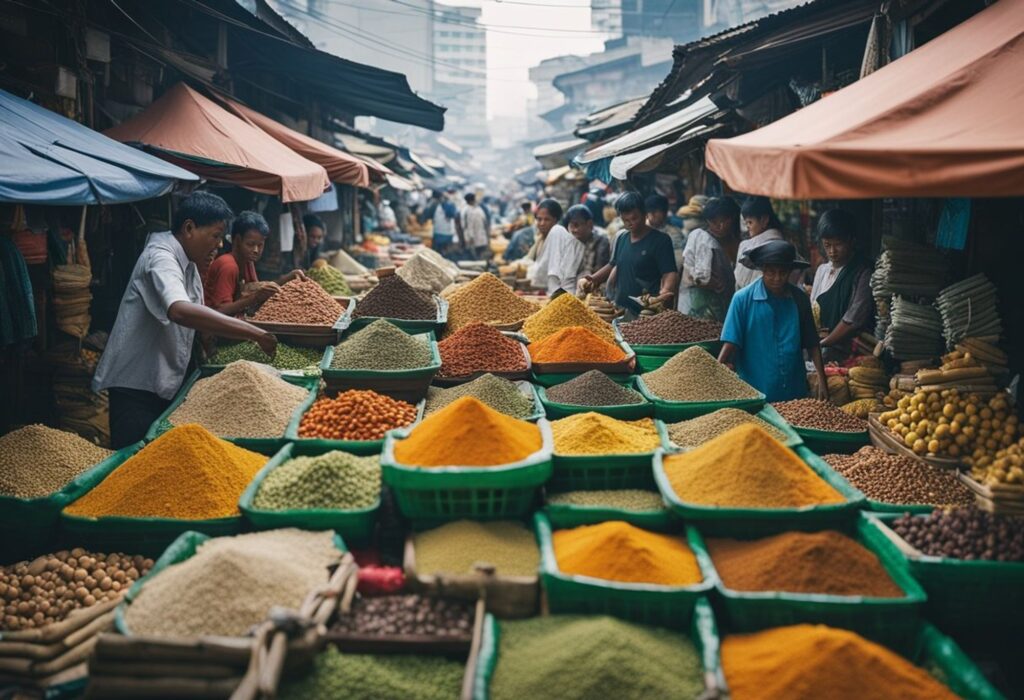
However, sourcing from Indonesia can also present challenges, such as navigating the complex legal framework, establishing business relationships, and managing logistics and supply chain operations. To succeed in sourcing from Indonesia, businesses need to have a deep understanding of the market, establish strong relationships with suppliers, and implement effective sourcing strategies. This article will provide an overview of best practices for sourcing in Indonesia, including case studies of successful sourcing from Bali to Jakarta, and answer frequently asked questions about the Indonesian sourcing industry.
Key Takeaways
- Understanding the Indonesian market is key to successful sourcing from Indonesia.
- Establishing strong business relationships with suppliers is crucial for success.
- Effective sourcing strategies, logistics and supply chain management, and compliance with legal frameworks are essential for successful sourcing in Indonesia.
Understanding the Indonesian Market
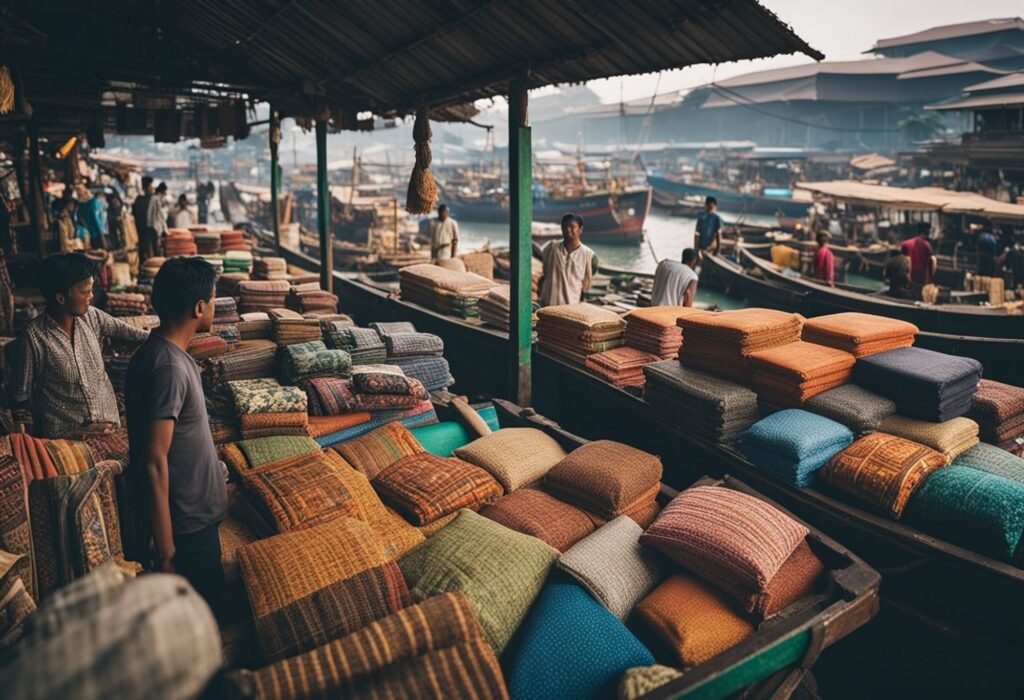
Cultural Considerations
Indonesia has a diverse cultural landscape that can impact sourcing practices. It is important to understand the cultural norms and values of the local suppliers and customers. For example, Indonesians value personal relationships and trust in business dealings, so building a strong relationship with suppliers is key to success. Additionally, understanding the local language and customs can help build trust and rapport with suppliers.
Economic Landscape
Indonesia is the largest economy in Southeast Asia and has a rapidly growing middle class. This presents an opportunity for businesses looking to source products from Indonesia. However, the country also faces challenges such as corruption, infrastructure issues, and a complex regulatory environment. It is important to work with reliable suppliers and understand the regulatory landscape to avoid potential pitfalls.
Indonesia has a diverse range of industries, including agriculture, manufacturing, and services. Some of the top products sourced from Indonesia include textiles, furniture, and food products. Businesses looking to source from Indonesia should consider the strengths and weaknesses of different industries and suppliers to find the best fit for their needs.
Overall, understanding the cultural and economic landscape of Indonesia is crucial for businesses looking to source products from the country. By building strong relationships with suppliers and navigating the regulatory environment, businesses can take advantage of the opportunities presented by this dynamic market.
Establishing Business Relationships in Indonesia

Indonesia is a relationship-driven culture where trust and personal connections are essential to doing business successfully. Building a good rapport with business partners is crucial, as it establishes a foundation of trust and respect that can lead to long-term partnerships.
Communication Styles
Indonesians value indirect and polite communication, avoiding direct confrontation or saying “no” outright to save face. It is important to be mindful of this cultural norm and to approach communication with a respectful and patient attitude.
Small talk and pleasantries are often used to establish a friendly and comfortable atmosphere before discussing business matters. Business meetings can be hierarchical, with seniority playing a significant role. It is advisable to address the most senior person in the room first and to show respect for their position.
Negotiation Tactics
Negotiating in Indonesia can be a delicate process, and it is important to approach it with sensitivity and respect for the other party’s position. Indonesians tend to be indirect in their communication style, so it is important to read between the lines and pay attention to nonverbal cues.
The negotiation process can be slow and may require multiple meetings before a final agreement is reached. It is important to be patient and to avoid being overly aggressive or pushy. Indonesians value relationships over transactions, so building a good rapport with the other party can be just as important as the terms of the agreement itself.
In conclusion, establishing strong business relationships in Indonesia requires patience, respect, and a willingness to build personal connections. By being mindful of cultural norms and communication styles, businesses can lay the foundation for successful partnerships that can last for years to come.
Logistics and Supply Chain Management
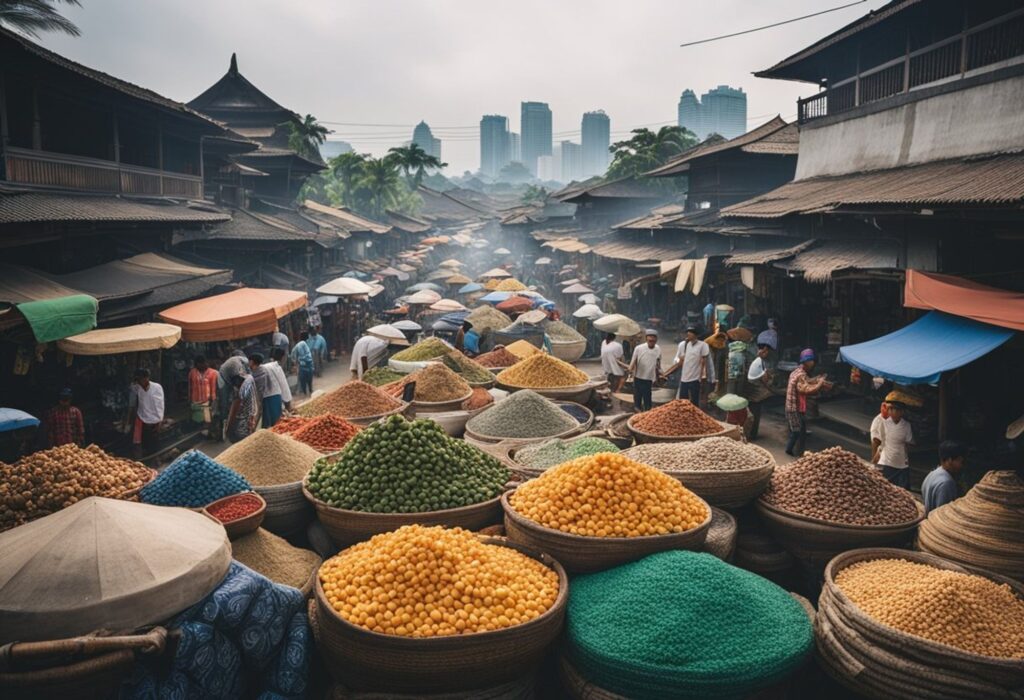
Transport Infrastructure
Indonesia’s transportation infrastructure is vast and complex, with multiple modes of transportation available, including air, sea, rail, and road. However, the country’s infrastructure is still developing, and logistics and supply chain management can be challenging due to the lack of modern infrastructure. According to PwC, Indonesia’s logistics industry is expected to grow by more than 6% annually, driven by the rapid growth of the national digital economy. The transportation sector and the e-commerce industry are expected to play a significant role in this growth.
To overcome the challenges of Indonesia’s transportation infrastructure, companies should consider using a combination of transportation modes to optimize their supply chain. For example, air transportation can be expensive but is suitable for high-value goods that require fast delivery. On the other hand, sea transportation is more cost-effective for low-value goods that can withstand longer transit times. Road transportation is the most common mode of transportation in Indonesia and is suitable for goods that need to be delivered to remote areas.
Inventory Management
Effective inventory management is crucial for successful supply chain management in Indonesia. Companies should consider the unique challenges of the Indonesian market when developing their inventory management strategy. For example, Indonesia’s geography and infrastructure can make it difficult to transport goods quickly and efficiently, which can result in longer lead times and inventory carrying costs.
To optimize inventory management, companies should consider using technology solutions such as warehouse management systems and inventory tracking software. These solutions can help companies track inventory levels, monitor demand, and optimize inventory levels to minimize carrying costs. Additionally, companies should consider working with local partners who have a deep understanding of the local market and can help them manage inventory effectively.
In conclusion, logistics and supply chain management can be challenging in Indonesia due to the country’s vast and complex transportation infrastructure. However, by using a combination of transportation modes and implementing effective inventory management strategies, companies can optimize their supply chain and succeed in the Indonesian market.
Legal Framework for Sourcing in Indonesia
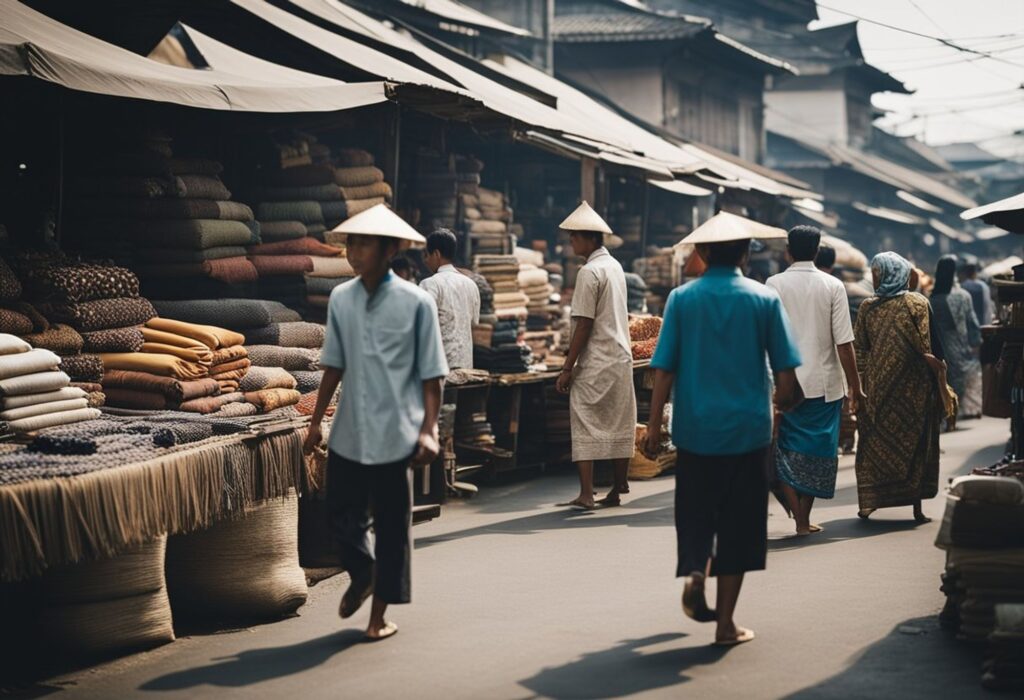
Indonesia has a complex legal framework that companies need to navigate when sourcing products from the country. This section will cover two important aspects of the legal framework: regulatory compliance and contract enforcement.
Regulatory Compliance
Businesses need to ensure that they comply with the relevant regulations when sourcing products from Indonesia. The Indonesian government has implemented various regulations to ensure that businesses operate in a fair and transparent manner.
One of the most important regulations is Law No. 13 of 2003 on Manpower, which governs employment relationships in Indonesia. This law sets out the minimum wage, working hours, and employee benefits that employers must provide. Companies need to ensure that they comply with these regulations when sourcing products from Indonesia.
Another important regulation is Law No. 7 of 2014 on Trade, which regulates the import and export of goods in Indonesia. This law sets out the requirements for importing and exporting goods, including the need for import and export licenses.
Contract Enforcement
In addition to complying with regulations, companies need to ensure that their contracts are enforceable in Indonesia. The Indonesian legal system can be complex and time-consuming, so it is important for companies to have a clear understanding of their legal rights and obligations.
One important consideration is the choice of law and jurisdiction clause in the contract. Companies need to ensure that the contract specifies the applicable law and jurisdiction. This can help to ensure that any disputes are resolved in a timely and cost-effective manner.
Another important consideration is the use of arbitration clauses in contracts. Arbitration can be a faster and more cost-effective way to resolve disputes than going through the Indonesian court system. Companies should consider including an arbitration clause in their contracts to ensure that any disputes are resolved quickly and efficiently.
In conclusion, sourcing products from Indonesia requires businesses to navigate a complex legal framework. By ensuring regulatory compliance and contract enforceability, companies can minimize the risks associated with sourcing products from Indonesia.
Sourcing Strategies
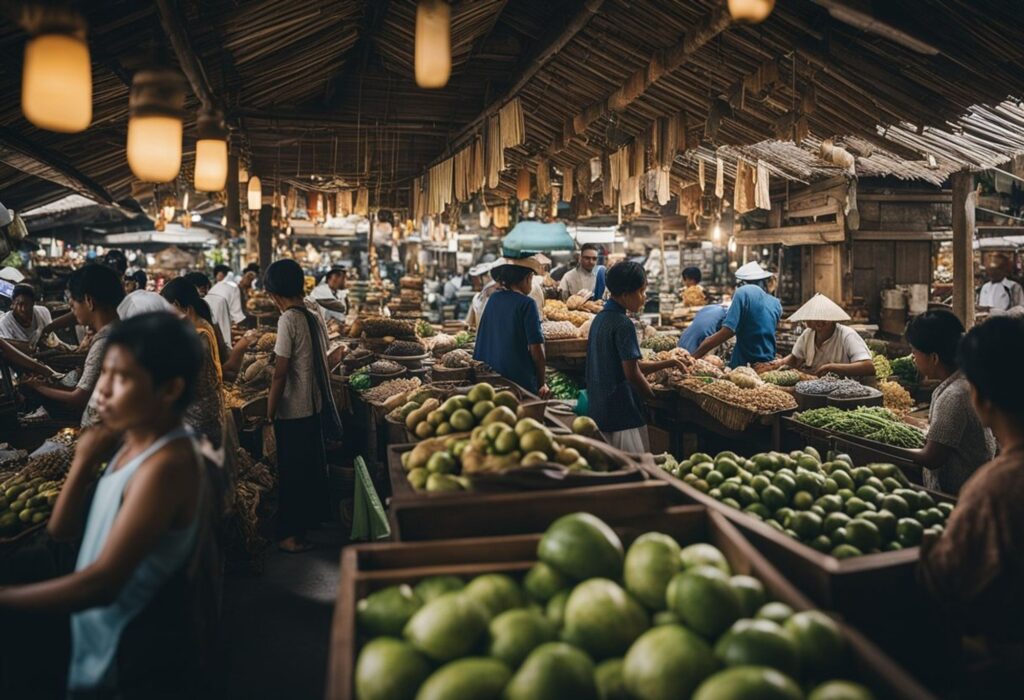
Supplier Evaluation
When sourcing from Indonesia, it is important to have a robust supplier evaluation process in place to ensure that you work with reliable and high-quality suppliers. One way to evaluate potential suppliers is to conduct a site visit to their facility. This allows you to assess the supplier’s production capabilities, quality control measures, and working conditions. Additionally, you can request samples of the products you are interested in to ensure that they meet your quality standards.
Another important factor to consider when evaluating suppliers in Indonesia is their compliance with international standards and regulations. For example, suppliers should comply with labor laws and regulations, environmental regulations, and product safety standards. It is also important to ensure that suppliers have the necessary certifications and licenses to operate in their industry.
Risk Mitigation
Sourcing from Indonesia can come with certain risks, such as political instability, natural disasters, and supply chain disruptions. To mitigate these risks, it is important to have a risk management plan in place. This plan should include strategies for identifying and assessing risks, as well as contingency plans in case of supply chain disruptions.
One way to mitigate supply chain risks is to diversify your supplier base. By working with multiple suppliers, you can reduce your dependence on any one supplier and minimize the impact of supply chain disruptions. Additionally, you can consider using a third-party logistics provider to manage your supply chain and ensure that your products are delivered on time and in good condition.
Overall, sourcing from Indonesia can be a cost-effective and high-quality option for businesses. By implementing effective sourcing strategies and risk management plans, businesses can minimize risks and maximize the benefits of sourcing from Indonesia.
Sustainability and Ethical Considerations

When sourcing products in Indonesia, it is important to consider the environmental impact and labor practices of suppliers. By prioritizing sustainability and ethical considerations, businesses can not only reduce their negative impact on the environment and society but also improve their brand reputation and customer loyalty.
Environmental Impact
Indonesia is home to diverse ecosystems, including rainforests, coral reefs, and mangroves, which are threatened by deforestation, pollution, and climate change. To minimize their environmental impact, businesses can source from suppliers that prioritize sustainable practices, such as using renewable energy, reducing waste, and conserving biodiversity.
For example, Ijen at Potato Head Beach Club in Seminyak is Indonesia’s first zero-waste eatery, which is dedicated to ethical sourcing and social responsibility. Bali also has a number of sustainable brands, such as Red Gunpowder Bali, which offers eco-friendly products made from natural materials.
Labor Practices
Indonesia has faced criticism for its labor practices, including low wages, poor working conditions, and child labor. To ensure ethical sourcing, businesses can work with suppliers that comply with international labor standards, such as the International Labour Organization’s (ILO) core conventions.
For example, businesses can source from suppliers that provide fair wages, safe working conditions, and opportunities for professional development. In addition, businesses can support initiatives that promote social responsibility, such as Suksma Bali, which represents private businesses focused on awareness and action for Bali’s environment.
By prioritizing sustainability and ethical considerations, businesses can not only improve their bottom line but also contribute to the well-being of the environment and society.
Technology in Sourcing
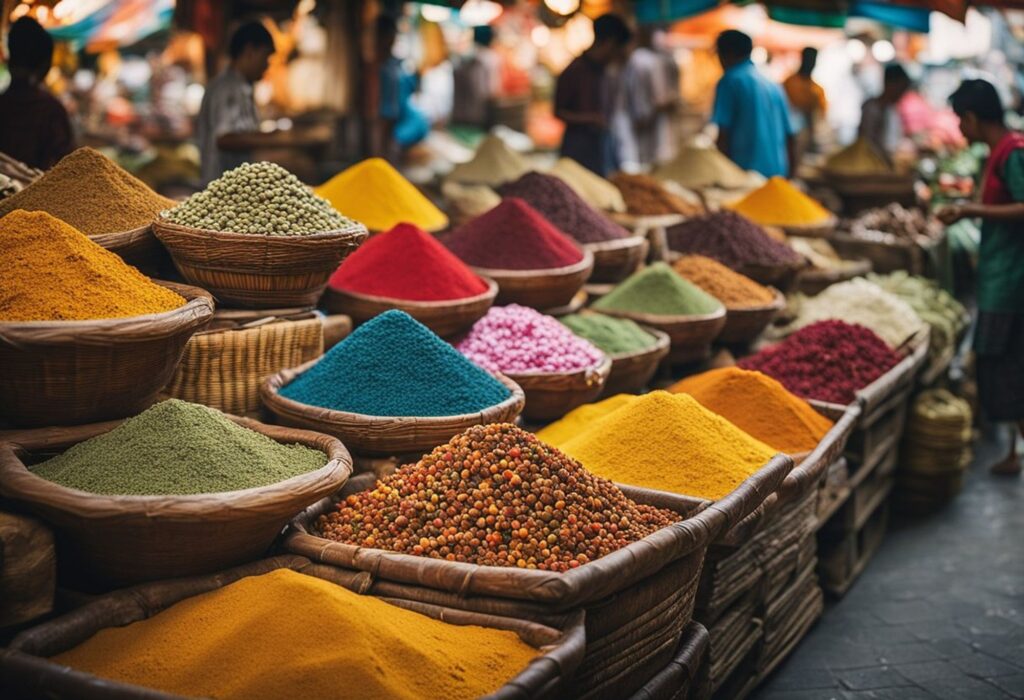
Digital Transformation
Indonesia’s sourcing industry has undergone significant digital transformation in recent years. The implementation of technology has made sourcing more efficient, transparent, and cost-effective. According to a report by McKinsey & Company, the adoption of technology could add 0.55 percentage points to GDP growth annually between 2020 and 2040 in Indonesia.
One of the most significant advancements in digital transformation is the use of e-sourcing platforms. These platforms allow buyers to connect with suppliers and manage the sourcing process digitally. This has made it easier to find reliable suppliers, reduce lead times, and streamline communication.
Another technology that has transformed the sourcing industry is the use of artificial intelligence (AI) and machine learning. AI algorithms can analyze vast amounts of data to identify trends, predict demand, and optimize sourcing decisions. This has made the sourcing process more data-driven and less reliant on intuition.
Data Analytics in Sourcing
Data analytics is another technology that has transformed the sourcing industry in Indonesia. By analyzing data, sourcing professionals can make informed decisions about supplier selection, pricing, and risk management. This has led to more efficient sourcing processes and improved supplier performance.
One of the most significant benefits of data analytics in sourcing is the ability to identify and mitigate risks. By analyzing supplier data, sourcing professionals can identify potential risks such as quality issues, delivery delays, and financial instability. This allows them to take proactive measures to mitigate these risks before they become a problem.
In conclusion, technology has transformed the sourcing industry in Indonesia, making it more efficient, transparent, and data-driven. The adoption of e-sourcing platforms, AI, and data analytics has made it easier to find reliable suppliers, reduce lead times, and mitigate risks. As technology continues to evolve, the sourcing industry in Indonesia is likely to become even more efficient and effective.
Case Studies of Successful Sourcing from Bali to Jakarta
Indonesia is a country with a diverse economy and a rich cultural heritage. The country is home to many skilled artisans and manufacturers who produce high-quality products for both domestic and international markets. In recent years, Indonesia has become an attractive destination for companies looking to source products at competitive prices without compromising on quality. Here are a few case studies of successful sourcing from Bali to Jakarta:
Case Study 1: Sourcing Handicrafts from Bali
A US-based retailer specializing in home decor and accessories wanted to source unique and authentic handicrafts from Bali. The company was looking for a reliable supplier who could provide a range of products, including hand-carved wooden sculptures, woven baskets, and batik textiles. After conducting extensive research and due diligence, the company partnered with a local sourcing agent in Bali who had a deep understanding of the local market and had built strong relationships with local artisans and manufacturers. The sourcing agent was able to provide the company with a steady supply of high-quality handicrafts at competitive prices, enabling the company to expand its product range and grow its business.
Case Study 2: Sourcing Furniture from Jakarta
A UK-based furniture retailer was looking to source high-quality furniture from Jakarta at competitive prices. The company wanted to work with a supplier who could provide a range of products, including sofas, chairs, and tables, that met its strict quality standards. The company partnered with a local sourcing agent in Jakarta who had extensive experience in the furniture industry and had built strong relationships with local manufacturers. The sourcing agent was able to provide the company with a range of high-quality furniture products at competitive prices, enabling the company to expand its product range and increase its profit margins.
Case Study 3: Sourcing Clothing from Bali
An Australian clothing brand was looking to source high-quality clothing from Bali at competitive prices. The company wanted to work with a supplier who could provide a range of products, including dresses, skirts, and tops, that met its strict quality standards. The company partnered with a local sourcing agent in Bali who had a deep understanding of the local textile industry and had built strong relationships with local manufacturers. The sourcing agent was able to provide the company with a range of high-quality clothing products at competitive prices, enabling the company to expand its product range and increase its market share.
In conclusion, sourcing from Bali to Jakarta can be a great way for companies to access high-quality products at competitive prices. By partnering with a reliable sourcing agent who has a deep understanding of the local market and has built strong relationships with local manufacturers and artisans, companies can expand their product range and grow their business.
Frequently Asked Questions
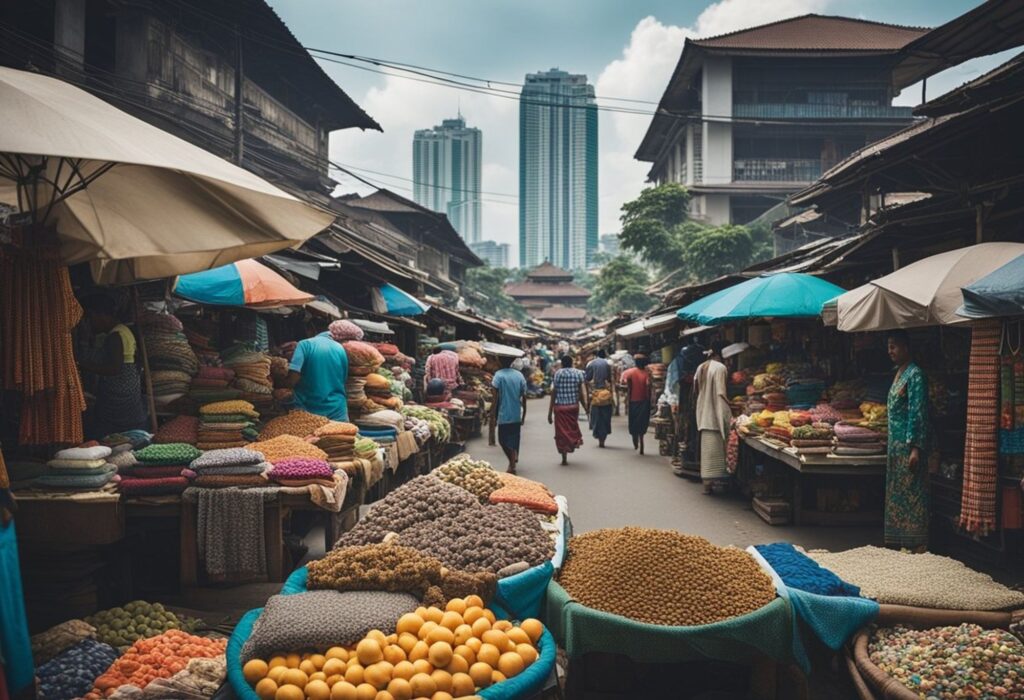
What are the legal requirements for setting up a trading company in Indonesia?
To establish a trading company in Indonesia, foreign investors must first obtain a business license and register their company with the Indonesian government. The process can be complex and time-consuming, as it involves obtaining various permits and approvals from multiple government agencies. It is recommended that investors seek the assistance of a reputable legal firm to navigate the process.
What is the most efficient mode of transportation for goods between Jakarta and Bali?
The most efficient mode of transportation for goods between Jakarta and Bali depends on the type of goods being transported, the volume of goods, and the urgency of the delivery. Air freight is the fastest mode of transportation, but it can be expensive for large or heavy shipments. Sea freight is a more cost-effective option for larger shipments, but it can take longer. Road transportation is also an option for smaller shipments, but it can be slower and more expensive than air or sea freight.
How does the ease of doing business in Indonesia compare to other Southeast Asian countries?
Indonesia has made significant progress in recent years to improve its business environment and attract foreign investment. However, the country still ranks lower than some of its Southeast Asian neighbors in terms of ease of doing business. According to the World Bank’s 2021 Doing Business report, Indonesia ranks 73rd out of 190 countries, behind countries such as Singapore, Malaysia, and Thailand.
Can international entrepreneurs establish a business presence in Indonesia, and what are the steps?
Yes, international entrepreneurs can establish a business presence in Indonesia. The first step is to obtain a business visa, which allows the entrepreneur to enter Indonesia for business purposes. Once in Indonesia, the entrepreneur can register their company and obtain the necessary permits and approvals to operate legally. It is recommended that entrepreneurs seek the assistance of a reputable legal firm to navigate the process.
What are the key considerations when choosing a sourcing partner in Indonesia?
When choosing a sourcing partner in Indonesia, it is important to consider factors such as the partner’s experience, reputation, and track record. It is also important to consider the partner’s capabilities, such as their ability to source high-quality products at a competitive price. Other considerations may include the partner’s location, communication skills, and ability to meet deadlines.
What are the customs regulations to be aware of when importing goods from Bali to Jakarta?
When importing goods from Bali to Jakarta, it is important to be aware of the customs regulations and procedures. Goods must be properly declared and accompanied by the necessary documentation, including a bill of lading, commercial invoice, and packing list. Certain goods may also require additional permits or approvals from government agencies. It is recommended that importers seek the assistance of a reputable customs broker to ensure compliance with the regulations.
Navigate the vibrant markets and hidden gems of Indonesia with our expert guide.
Learn the top strategies for sourcing high-quality products and establishing reliable supplier connections. Click here to explore our comprehensive guide and elevate your sourcing journey today!
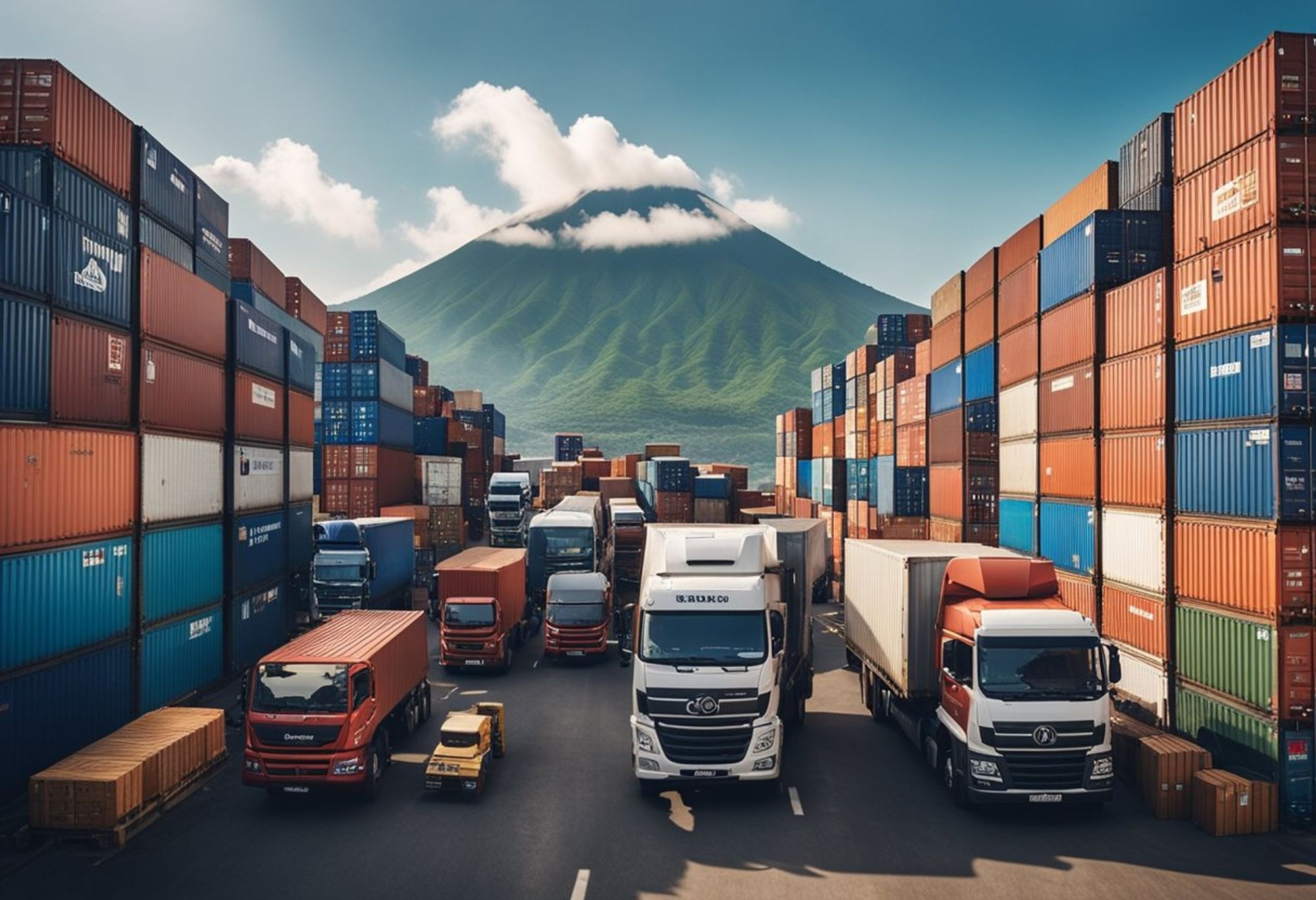
Leave a Reply